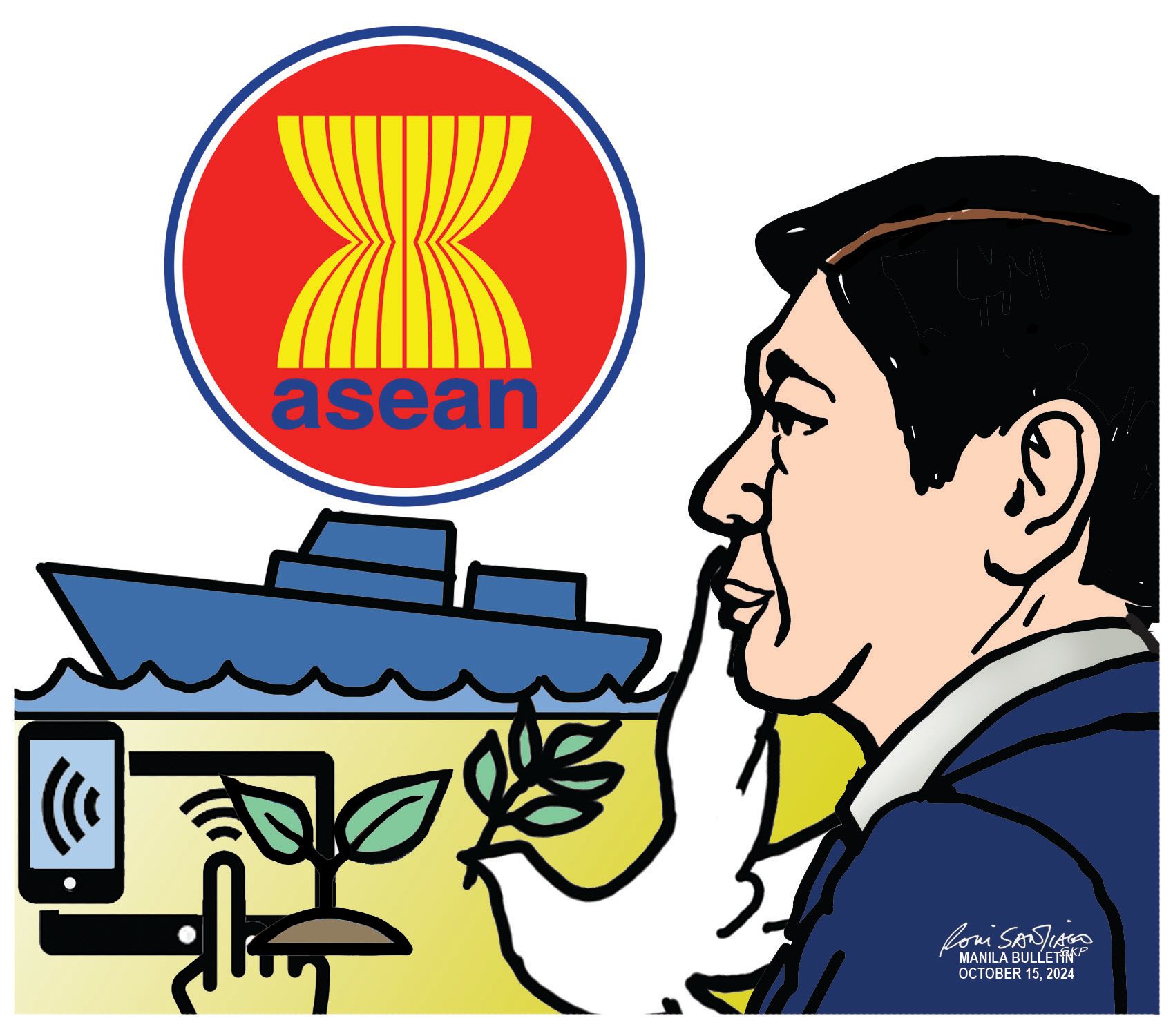
President Ferdinand Marcos Jr.’s participation in the ASEAN Summit in Vientiane, Laos from Oct. 9 to 11, 2024, signaled anew the Philippines’ strong commitment to advancing key regional and global priorities. As in previous summits, he emphasized the country’s advocacy for a rules-based resolution of disputes, especially in the South China Sea, where the Philippines has a significant stake.
The reaffirmation of ASEAN’s centrality, wherein all disputes are resolved peacefully through established international mechanisms like the United Nations Convention on the Law of the Sea (UNCLOS), ensures that the Philippines’ territorial and maritime interests are safeguarded within a cooperative regional framework. By supporting this rules-based approach, the Philippines solidifies its stance on upholding international law and multilateral diplomacy as essential tools for maintaining peace.
The Philippines, a country with a long-standing commitment to peace-building, stands to benefit from collective efforts that ensure the region remains free from conflicts. In a world fraught with geopolitical tensions, ASEAN’s ability to maintain its relevance as a stabilizing force is vital for the future of Southeast Asia.
Beyond geopolitical concerns, sustainable agriculture and food security were key focal points of the summit, and areas of paramount concern for the Philippines. President Marcos emphasized the need for sustainable farming practices, particularly as the country grapples with the impacts of climate change on agriculture. With more frequent typhoons and unpredictable weather patterns, the Philippines’ advocacy for sustainable agricultural practices within ASEAN will help safeguard food production while addressing broader environmental challenges. ASEAN’s commitment to ensuring food security through collaborative initiatives is beneficial to millions of Filipinos, particularly those in rural farming communities.
Micro, small, and medium-sized enterprises (MSMEs), which form the backbone of the Philippine economy, were also prioritized. Digital transformation and innovation are essential in propelling MSMEs forward, and President Marcos underscored the need for technological infrastructure and capacity-building in this sector. Through regional cooperation and knowledge sharing, the Philippines can further stimulate MSMEs’ growth and enhance their competitiveness in the global digital economy.
Sustainable tourism, another key pillar of ASEAN’s economic recovery post-pandemic, is an area where the Philippines has much to offer. With its natural beauty and cultural heritage, the country is well-positioned to become a leading advocate for sustainable tourism practices.
The Philippines’ strong stance on climate justice reflects the urgent need for developed countries to take greater responsibility for reducing carbon emissions and for ASEAN to take collective action in mitigating climate-related risks.
As the Philippines hosts the Loss and Damage Fund Board, it plays a strategic role in supporting the flow of climate finance to countries which are most vulnerable to climate change, as well as advocating for needed support and action on climate resilience.
The Philippines will host the ASPAC Ministerial Conference on Disaster Risk Reduction this week, reinforcing its role as a regional leader in disaster resilience. This conference will serve as a platform for sharing best practices and forging partnerships that will strengthen the region’s capacity to respond to natural disasters, which are becoming increasingly frequent and severe due to climate change.
In sum, the President’s engagement with other heads of state, business and industry leaders, as well as with representatives of the youth enabled beneficial dialogues on promoting the prosperity and welfare of the ASEAN peoples and the entire region.